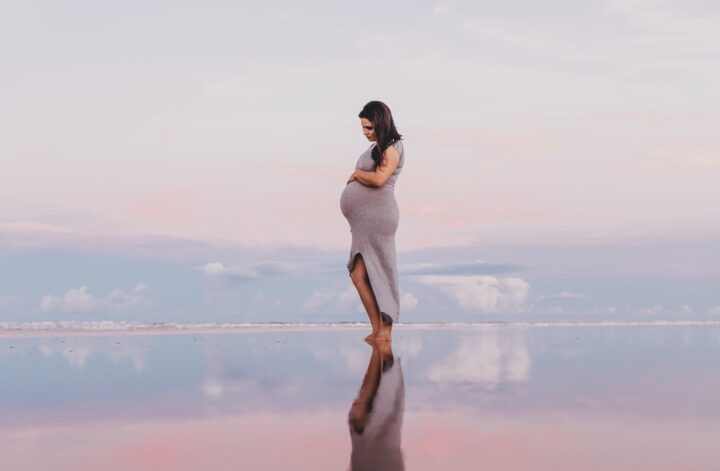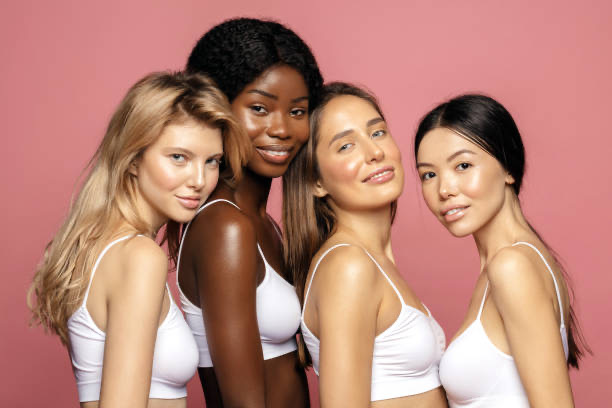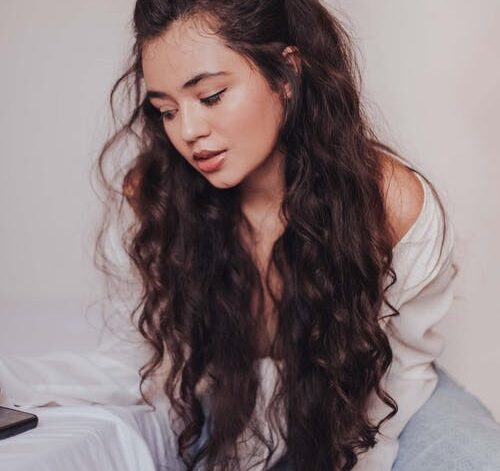Hormones, vitamin levels and dietary changes during pregnancy and postpartum affect our hair in different ways. In this post I’ve created the ultimate guide to your hair during and after pregnancy. What can we do to take extra care of our hair during this (and challenging) time? Read on to find out.
Many women report thicker, healthier hair during pregnancy. This is due to the release of the hormone estrogen which causes natural hair loss to slow down. Others report hair loss, which can be caused by anaemia (iron deficiency) or hormonal shifts. Postpartum hair loss is very common as our hormones regulate and can last up to 12 months before regulating.
There is so much to navigate during pregnancy. In this post I will break down the different ways pregnancy can affect our hair and what can be done to ensure the best hair health possible so you can focus on growing your bundle of joy with one less thing to worry about.
What is estrogen and how does it affect hair?
Estrogen is one of the main female sex hormones. It is produced primarily by the ovaries but fat cells and adrenal glands also produce small amounts. We have varying degrees of estrogen in our bodies throughout our life cycle.
Estrogen is responsible for regulating the menstrual cycle as well as affecting the reproductive tracts, urinary tract, heart and blood vessels, skin, hair, breasts, pelvic muscles and the brain as well as many of our organ systems and body hair are affected.
When we reach puberty, our estrogen levels rise causing our body hair to grow. When we are pregnant, our estrogen levels rise causing our natural hair loss to slow down. By the time we reach menopause, estrogen levels drop which cause our hair to thin.
During pregnancy, at around 15 weeks, many women experience thicker, stronger hair. This is because the estrogen hormone has caused our hair to rest longer before falling out. During ‘normal’ cycle, we lose between 50-100 hairs a day. This can slow down drastically during pregnancy, only to catch up postpartum at around 3-4 months when women often experience hair loss. This is very common and nothing to worry about. It can last up to 12 months postpartum, at which point it should settle.
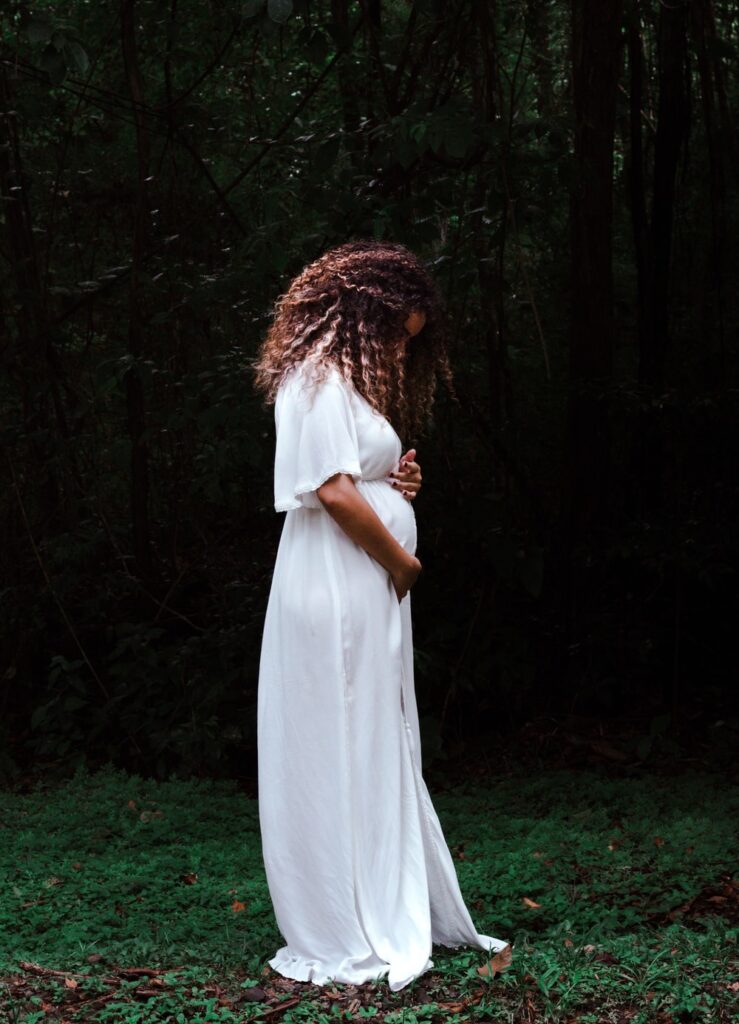
What is iron deficiency and what can be done to prevent it?
During pregnancy iron deficiency is very common. This is because our body uses iron to make hemoglobin, a protein in the red blood cells that traps oxygen from the lungs and carries it around the body. Pregnant women require twice the amount of iron as your body is producing extra blood for your baby. Approximately 50% of pregnant women don’t get enough iron and need to take supplements and make dietary adjustments.
Symptoms of iron deficiency include:
- Lack of energy
- Hair loss
- Pale skin
- Heart palpitations
- Shortness of breath
- Headaches
- Dizziness
- Chest pains
If you suspect you might have an iron deficiency a simple blood test will determine your levels. If your iron levels are low, your GP is likely to prescribe iron supplements. It is advised to avoid certain foods which can inhibit iron absorption such as dairy, broccoli, sardines and almonds.
There are many iron rich foods which can be added to your diet during pregnancy. These include meat, fish and poultry as well as vegetarian options like dark leafy greens, lentils and other legumes, nuts and tofu. A glass of orange juice will assist your body with iron absorption.
How to prevent hair loss during pregnancy
It is inevitable that during pregnancy our hormones will change and surge and make our bodies do all kinds of strange and unexpected things. Hair loss is fairly common and usually is not a cause for concern. I would like to stress that if you are concerned and you feel it might be something more than ‘normal’ hormonal shifts, you should seek medical advice.
Hair loss can be caused by Telogen Effluvium, Hyperthyroidism or Hypothyroidism (over or under active thyroid) or it could be stress related. Your doctor will be able to check your vitamin levels and if necessary prescribe medication.
We cannot prevent our hormones from changing but there are a few things we can do to maximize hair health and balance:
- Eat a healthy and balanced diet, focusing on iron intake
- Take pre-natal vitamins
- Small amounts of sun is beneficial to general wellbeing
- Check your vitamin levels at the doctor and supplement if necessary
- Be very gentle with your hair, more tips to care for your hair here.
- If in doubt, seek medical advice!
How can I prevent postpartum hair loss?
Postpartum hair loss can be incredibly frustrating. Many women experience thick, full hair during pregnancy due to estrogen which causes hair loss to slow down. About 3-4 months postpartum, all the hair that didn’t fall out, suddenly does and it can be quite scary! Don’t be alarmed though as it is totally natural. Here are a few tips to deal with postpartum hair loss:
- Continue taking prenatal vitamins postpartum
- Use a Biotin shampoo
- Avoid vigorous brushing, especially when wet.
- Use gentle hair ties, preferably fabric ones like scrunchies.
- A silk pillowcase is the most gentle option for your hair.
- Use leave in conditioner after towel drying to detangle
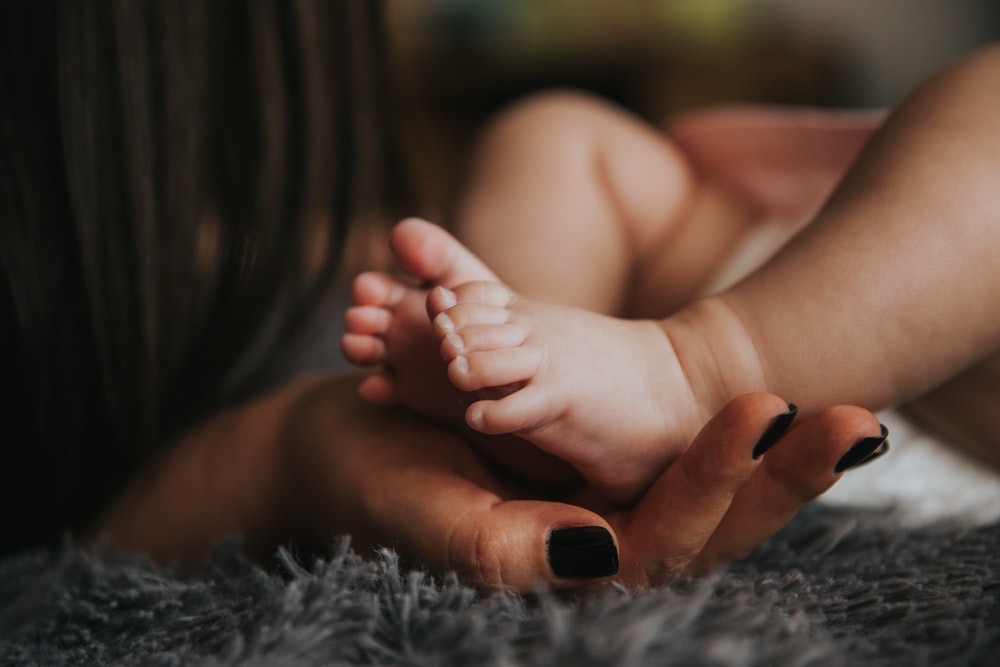
Related questions:
Is it safe to color my hair while pregnant?
There is insufficient evidence to suggest that hair color is harmful to you or your baby during pregnancy. The general consensus is that it is perfectly safe to color your hair during pregnancy. If you would like to take extra precaution, you can ask your stylist to use an organic, ammonia free color.
It is not recommended to do Keratin treatment during pregnancy. More useful information about keratin treatments here.
What products are best to use and are there any that should be avoided?
During pregnancy, postpartum and always in general, I advise using products that are as natural as possible. Sulfate free, paraben free, preferably organic and sustainable.
With these guidelines you can hardly go wrong. There are a few brands I use and recommend:
- O-way. Organic way is an Italian brand which is sustainable, organic and even uses natural scents such as essential oils. They also have an organic, ammonia free color range.
- Davines. Another Italian brand which is also sustainable. All of their offices are ‘carbon neutral’ and all of their packaging is 100% compensated.
- Oribe which is a very high quality, mostly vegan brand with a smell to die for and packaging that will elevate any bathroom.
A final note to moms to be: Pregnancy is an exciting, emotional and delicate time. There is so much conflicting advice out there and as expecting mothers, it’s hard to always know what is best. One thing I’ve learned though my personal experience is that in the end of the day, the most important thing is that you feel safe and that you trust your instincts. You are the mother and you do truly know what is best for you and your baby. Listen to your inner voice mama, you got this.
